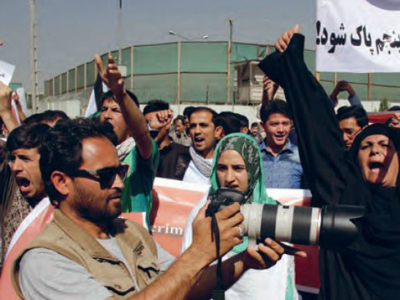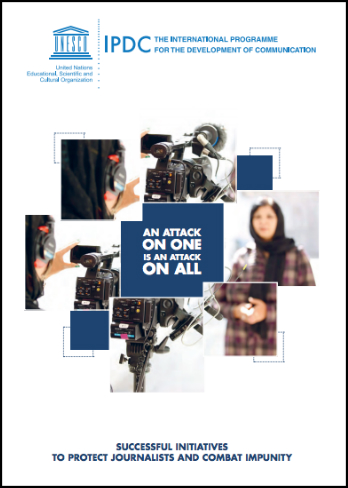
Just Published : Bold Projects to Protect Journalists |
|
Monday, 3 July 2017 Maria Ressa, head of the Philippines-based social media news network Rappler, was chosen by UNESCO to receive the first copy of my report, “An Attack on One is an Attack on All: Successful Initiatives to Protect Journalists and Combat Impunity.” She is an apt choice. Her work to combat and prevent gender online harassment, highlighted in the report published by UNESCO’s International Programme for the Development of Communication, can provide inspiration and solutions for others facing similar attacks. In fact, all of the people in this report are helping to protect the lives and work of journalists around the world. They deserve wider attention for their successful grassroots and global efforts to combat attacks on their colleagues. Many of these cases arise from tragedy, inspired by the deaths of friends and co-workers. But these are also stories of survival and inspiration, and illustrate a variety of pro-active responses to unabated attacks on journalists.
The report was launched in Geneva last week during a meeting to strengthen the UN Plan of Action on the Safety of Journalists and the Issue of Impunity. It can be downloaded, without charge (in English, with French, Spanish and Arabic versions to follow) here. Larry Kilman is Associate Director for Communications at the Institute for Media Strategies, Assistant Professor of NGO Management at the American Graduate School in Paris, and a specialist consultant on the safety of journalists with UNESCO. He is the former Secretary-General of the World Association of Newspapers and News Publishers (WAN-IFRA). He worked as a journalist for more than 20 years in Asia, Europe and the United States, primarily with Agence France-Presse, Radio Free Europe and The Associated Press. Photo courtesy of International Media Support via UNESCO |

 By Larry Kilman
By Larry Kilman The report focuses on 22 cases of what journalists, media, non-governmental organizations and media associations are doing to protect journalists and combat impunity. Though it is far from exhaustive, it illustrates some of the emerging trends:
The report focuses on 22 cases of what journalists, media, non-governmental organizations and media associations are doing to protect journalists and combat impunity. Though it is far from exhaustive, it illustrates some of the emerging trends: